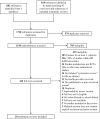Investigating the effectiveness of school health services delivered by a health provider: A systematic review of systematic reviews
- PMID: 31188826
- PMCID: PMC6561551
- DOI: 10.1371/journal.pone.0212603
Investigating the effectiveness of school health services delivered by a health provider: A systematic review of systematic reviews
Abstract
Schools are the only institution regularly reaching the majority of school-age children and adolescents across the globe. Although at least 102 countries have school health services, there is no rigorous, evidence-based guidance on which school health services are effective and should be implemented in schools. To investigate the effectiveness of school health services for improving the health of school-age children and adolescents, a systematic review of systematic reviews (overview) was conducted. Five databases were searched through June 2018. Systematic reviews of intervention studies that evaluated school-based or school-linked health services delivered by a health provider were included. Review quality was assessed using a modified Ballard and Montgomery four-item checklist. 1654 references were screened and 20 systematic reviews containing 270 primary studies were assessed narratively. Interventions with evidence for effectiveness addressed autism, depression, anxiety, obesity, dental caries, visual acuity, asthma, and sleep. No review evaluated the effectiveness of a multi-component school health services intervention addressing multiple health areas. From the limited amount of information available in existing systematic reviews, the strongest evidence supports implementation of anxiety prevention programs, indicated asthma education, and vision screening with provision of free spectacles. Additional systematic reviews are needed that analyze the effectiveness of comprehensive school health services, and specific services for under-researched health areas relevant for this population.
Conflict of interest statement
The authors have declared that no competing interests exist.
Figures
References
-
- WHO | Global school health initiative. In: WHO [Internet]. [cited 18 Jan 2018]. Available: http://www.who.int/school_youth_health/gshi/en/
-
- WHO, UNESCO, UNICEF, The World Bank. Focusing Resources on Effective School Health: a FRESH Start to Enhancing the Quality and Equity of Education. World Education Forum; 2000.
-
- WHO Information Series on School Health: Oral Health Promotion: An Essential Element of a Health-Promoting School. Geneva: World Health Organization; 2003.
-
- School-based deworming: A planner’s guide to proposal development for national school-based deworming programs [Internet]. Washington, DC: Deworm the World; 2010.
-
- WASH-Friendly Schools: Basic Guide for School Directors, Teachers, Students, Parents and Administrators [Internet]. Washington, DC: USAID Hygiene Improvement Project; 2010. August Available: http://www.schoolsandhealth.org/Pages/WASH.aspx
Publication types
MeSH terms
Grants and funding
LinkOut - more resources
Full Text Sources
Medical


